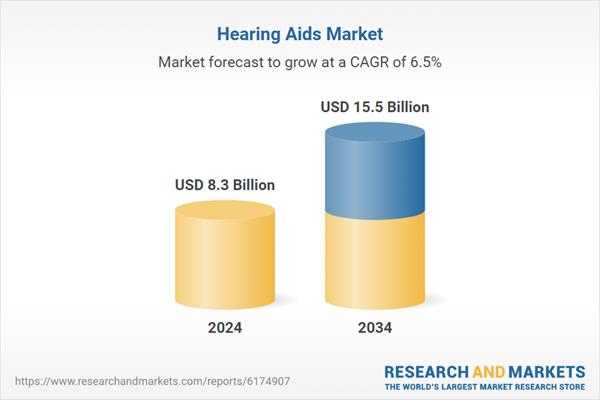The aging population is one of the most influential drivers of the hearing aids market, particularly in developed regions such as North America, Europe, and parts of Asia. As life expectancy continues to rise, so does the proportion of individuals aged 65 and older, an age group that is most susceptible to presbycusis, or age-related hearing loss.
Rising Demand for Behind-the-Ear (BTE) Devices
The Behind-the-Ear (BTE) segment generated notable revenues in 2024 owing to its versatility, durability, and ability to accommodate a wide range of hearing loss levels. BTE devices are especially preferred for older adults and children because of their ease of use, longer battery life, and ability to integrate with assistive listening technologies. The growing preference for multifunctional devices that balance performance with comfort is helping BTE models maintain their competitive edge.Increasing Adoption Among Adults
The adult segment held a sizeable share in 2024, driven by the rising prevalence of age-related hearing loss. As millions of adults enter their senior years, hearing impairment is becoming increasingly common, fueling demand for both prescription and over-the-counter solutions. Companies are tailoring their marketing strategies to appeal to tech-savvy older consumers who value features like rechargeable batteries, smartphone integration, and discreet aesthetics.Brick-and-Mortar to Gain Traction
The brick-and-mortar will grow at a decent CAGR during 2025-2034, backed by the clinical nature of the product. In-person hearing assessments, professional fittings, and post-purchase support continue to make physical clinics and audiology centers the preferred point of sale, especially for first-time users. Personalized care and the ability to test products on-site remain key advantages that keep this channel relevant and resilient.North America to Emerge as a Lucrative Region
North America hearing aids market garnered significant valuation in 2024, bolstered by its aging population, strong healthcare infrastructure, and widespread awareness. United States leads to the adoption of premium and over-the-counter hearing aids. Regulatory support, such as the FDA's approval of OTC devices, is driving accessibility and expanding consumer choice.Major players in the hearing aids market are Clariti Hearing, SOUNDWAVE HEARING, GN Store Nord, EARGO, Sonova, RION, Starkey, Audio Service, SeboTek Hearing Systems, Demant, Zounds Hearing, Ear Technology, WS Audiology, Audina Hearing Instruments, and Nano Hearing Aids
To strengthen their presence and gain share, hearing aid manufacturers are deploying a combination of product innovation, multi-channel distribution, and direct-to-consumer outreach. Many are investing in AI-powered sound processing, app-based controls, and rechargeable technology to meet the expectations of modern users. Strategic partnerships with retail pharmacies, optical chains, and consumer electronics outlets are helping brands expand their reach beyond traditional audiology clinics.
Comprehensive Market Analysis and Forecast
- Industry trends, key growth drivers, challenges, future opportunities, and regulatory landscape
- Competitive landscape with Porter’s Five Forces and PESTEL analysis
- Market size, segmentation, and regional forecasts
- In-depth company profiles, business strategies, financial insights, and SWOT analysis
This product will be delivered within 2-4 business days.
Table of Contents
Companies Mentioned
The key companies profiled in this Hearing Aids market report include:- Audina Hearing Instruments
- Audio Service
- Clariti Hearing
- Demant
- Ear Technology
- EARGO
- GN Store Nord
- Nano Hearing Aids
- RION
- SeboTek Hearing Systems
- Sonova
- SOUNDWAVE HEARING
- Starkey
- WS Audiology
- Zounds Hearing
Table Information
| Report Attribute | Details |
|---|---|
| No. of Pages | 145 |
| Published | September 2025 |
| Forecast Period | 2024 - 2034 |
| Estimated Market Value ( USD | $ 8.3 Billion |
| Forecasted Market Value ( USD | $ 15.5 Billion |
| Compound Annual Growth Rate | 6.5% |
| Regions Covered | Global |
| No. of Companies Mentioned | 16 |









